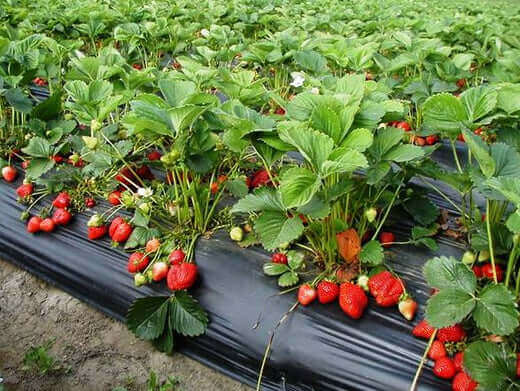Berry plants Berry plants can add to the richness of your garden in several ways.
Wineberries, berries blackberries, and loganberries can help you hide an old shed or decorate a dark tree. Raspberries can grow along the pavements and deter trespassers.
Several new varieties can also be purchased from any good wholesale nursery company.
These varieties provide extensive and tasty fruits season after season.
An intelligent way to grow strawberries is to plant them in straight rows instead of cumbersome beds. It will minimize your effort to achieve regular fruit. At least three rows should be planted, and each row can be allowed to fruit for three years and then replaced with a new row of plants. Once the fruit starts swelling, slug pellets can be placed along the rows, and the plants can be covered with a polythene strip. Ant powder may be dusted at regular intervals. When it is time for fruit picking, turn back the polythene and replace it once it is completed.
Strawberries are highly prone to certain viruses. Therefore, purchasing these online plant nurseries from a reliable wholesale nursery company is essential. Autumn is the best season for a plantation, but you may also do it in spring.
Some people also plant strawberries in July and August. It is acceptable to ensure the plants are regularly watered and cared for. Once the original rows of berries are in place, the parent plants may produce more runners than necessary. The excess runners should be removed as soon as they are visible and should not be allowed to take root.
A great variety of early crops are available nowadays. If you are a wholesale nursery company, you can check the various choices available with the online nursery before placing your order. Varieties such as Cambridge Rival and Sentry are suited for heavier soils.
Baron Solemacher alpine strawberries have a great taste, the Alexandria variety has a flavor similar to a banana, and the size of the fruit is more significant. The germination of both these varieties is haphazard, so extra care is required for a few weeks. If you have planted the seeds very early in the season, you can pick fruit in the first year. As the plants grow in size, you can divide them.
You can grow raspberries on almost any soil, but try to avoid lighter and dry soils, just as you do with strawberries. However, if your garden has raspberries in somewhat dry soil, ensure the ground is sufficiently watered as soon as the fruit is set. It will help the crop to prosper. Keeping the raspberries mulched with grass mowing and manure is also good. June and July are the peak months for this crop.
Wineberries, blackberries, and loganberries can thrive in any ordinary garden soil if it is not extremely poor or dry. Blackberries should be planted sufficiently apart because their growth can be pretty rapid. Once the fruiting is complete, the spent cranes should be cut to the ground. Following these simple gardening tips, your garden can thrive with berry plants.
To grow your successful blackberry patch blackberry patch, you must first decide what type of blackberry you will use.
You can get wild blackberries, raspberries, and thornless ones. All will mix and mingle to create a unique fruit unlike any other.
The more advised is the thornless as a patch of blackberries is a chore to work through and is even worse if the stems have sharp thorns coming from them. The place you pick for the patch should be in full sun, but can be in the shade as they thrive there. The place needs plenty of room as the plants grow out of their boundaries and quickly make an impassable area. The plant's fruit is ripe in midsummer and is colored depending on its type of plant.
The patch can be grown by seed or live plants (wild or nursery was grown). If it is grown from seeds, the plants may need to be fertilized before planting and watered heavily afterward. The live plants must be planted twice the size of their root ball with plenty of room. The fertilizer should then be added and heavily watered. These plants do not require large amounts of water but thrive if given large amounts. The fertilizer can be any kind (artificial to cow manure) and may not be needed as they tend to adapt quickly. Other plants are suggested to help pollination.
TN Nurseries' best-selling berry plants
Black Raspberry
Wild Strawberry
Dewberry
Blackberry
Healthy Berries


